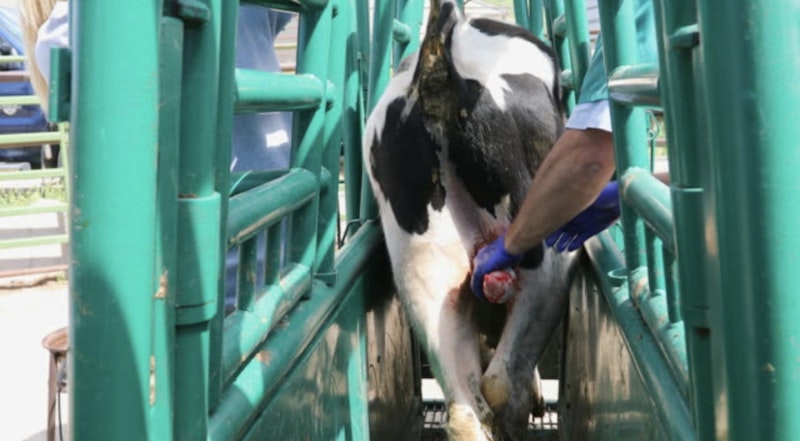Years after our “divorce,” my ex and I started going out to dinner around once a year. Nothing more ever happened, though once he invited me in afterward, which I declined. Because of this, I had snapshots of his dietary habits, until a couple of years ago when he retired to another country. One of the last times we dined, we ate at an oyster bar. My ex, a libertarian—not Milton Friedman or Kat Timpf famous, but sent to speak on college campuses and recently democratized countries—had oysters because “they don’t have a nervous system.” He’d become apara-ethical vegetarian.
Many vegetarians are like the pre-teen girls who try to stop eating meat because their unbounded and undisciplined empathy forces them to imagine what’s happening to the animals they eat (this rarely extends to leather goods). Humans can probably only eat meat because of the division of labor that allows us not to think about the origins since someone else takes care of that.
I was involved in the economy of meat twice as I lived on a farm from ages one-four and again from 12-18. In my first four years the most intimate I got with the livestock was to crawl under a herd of sheep to recover my mother’s flip-flop when she lost it and it ended up stuck in a sheep’s hoof. Horrified relatives looked on, certain I’d be trampled, but I emerged with the errant footwear.
In my second time on a farm, as a teenager, I was our expert in castration, dealing not in oysters but “mountain oysters.” Most people don’t realize that most of the meat they eat, whether pork, beef, or mutton, is from castrated animals (most also don’t realize cows are bisexual, with everyone in the herd riding any cow in heat, but that’s another story). Uncastrated animals don’t gain as much weight, as they spend their time rutting and jumping fences to find something to screw. Livestock are sold by the pound. So animals are castrated.
Years later, after I was divorced, I tended to date urban types, largely Jewish guys from New York, Philly, Chicago. My tales of farm life seemed to fascinate them back when a date required dinner, not Grindr. Stretching barbed-wire fences, cutting down trees, hoeing thistles—so exotic. Not the Abercrombie and Fitch WASP they might’ve been dreamed of, but still 100 percent all-American sheigetz.
The problem was, they wanted to hear it all. “All” includes the multiple modes of castration. Piglets you round up and then pin to the ground one by one, slitting the scrotum so that the testicle falls out. Then you slash the vas deferens and finish by spraying the wound with iodine and releasing them back into the muck. Their mother on the other side of a fence is trying to break through it and kill you.
Calves you similarly round up into a pen, the enraged mother trying to break in. You pin them to the ground and use a plyer-like implement to stretch a rubber donut around their scrotum, ensuring that both testicles are there and that neither has retracted from fear into their bodies. The blood supply to the balls is cut off and they atrophy and fall off.
Which is what most of my dates did. Though I was courted by an Amtrak lobbyist here or an economics professor there, years later I realized many dinner partners who asked for my tales of castration didn’t become second dates. At one point I ended up living with another male. But he wasn’t human. I named my cat, Paiwacket, after the feline in Bell, Book and Candle that belonged to Kim Novak’s character.
I let Paiwacket keep his nuts for two years. But then he got greasy, and stinky, and began to spray any clothing I left on the floor. He started herding me by butting my legs with his head, trying to tell me where to go and when it was time for food. “Little buddy,” I told him, “one of us is giving up our balls. And I’m the one with the credit card and the can opener, so…”
I found the cheapest vet for this in Annapolis, Maryland at a PetSmart in a strip mall. I dropped Paiwacket off and then enjoyed oysters (non-mountain) and crab cakes for lunch, to return at five p.m. to pick him up when Pai was brought back from the hospital. As the vet gave Pai his exit exam, I told him an edited tale of my experience sharing my castration knowledge with urban folk. And the vet schooled me further: “And you know, they do sheep yet a third way. They take two pieces of metal,” he raised his hands. Then he slapped them together and shouted “And they crush them!”
I almost slid down the wall.
Discussing my methods of castration no longer bothered me. When he described an unfamiliar method, I finally understood what I’d subjected all my Howards and Michaels and Davids to. I’m surprised I was never sued by the ADL.

